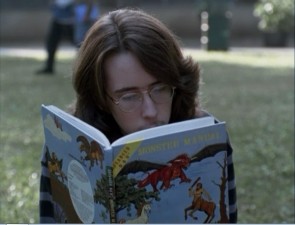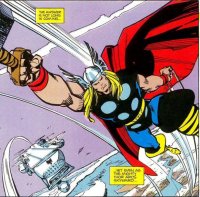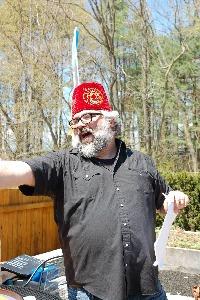You may not think you have what it take to runs a game of Dungeons & Dragons, but you might just surprise yourself.
Dungeons & Dragons has never been more popular in its 45-year history than it is now. As a result, there is a bumper crop of new people coming into game, both players and DMs. But as has always been the case, there are many more new players than new DMs. Dungeon Mastering remains the most challenging part of D&D, or any other tabletop roleplaying game for that matter. If you can’t find a group to play with, there’s a good chance you’ll have to be the DM. I’m here to tell you that you have what it takes. You would be a great Dungeon Master.
Now I know what you’re saying. You probably watch a show like Critical Role, where noted famous person Matt Mercer DMs with every colorful character and goofy voice in his arsenal. You might lurk around on websites like /r/dnd, and you see pictures of ridiculous terrain, detailed miniatures, and people in costume. Or you follow other personalities like Matt Colville, who dispense valuable advice for new DMs, and you don’t think you have it in you to create all the detail necessary to give your players a great experience. You might have great acting skills, great resources for fun props, or a bottomless well of creativity for a campaign setting, and if so that’s great. But you don’t need any of those things to be a great DM.
So what do you need? More than anything else, you need to know something about yourself. You need to have some idea of what you are good at, and then put your energy of DM preparation into that. Maybe you already know where your gifts lie. If you’re a writer who likes to put together terrific characters and storylines, that might be a good clue to what you should try. But if you’ve spent any amount of time as a D&D player, you already have an inkling of what matters to you. What did you really enjoy in your other sessions? More importantly, what drives you crazy as a player? Of course, you might not actually know what aspect of Dungeon Mastering you are good at. I was in this camp myself. If that’s you, the best way to learn is to practice. You will learn a lot about what does and doesn’t work for you by failing and succeeding by accident. Consider this article permission to experiment.
I’ll use myself as an example here, because I’m not much of a world-builder. (I’m more the type to write an essay on world-building, which as a skill is less in-demand.) I get irritated at the amount of abstract work that goes into creating pantheons, coming up with NPCs, stuff like that. Instead I’ve focused on pacing in the context of the actual session, because very few things drive me crazy like a session that feels like its bogging down. I’m a decent improvisational thinker too, so if I put in the time to read a published adventure before running it, I’ll be able to fill in details that aren’t there, or that I might forget in the moment. It still requires work, but reading an adventure is the sort of thing I enjoy doing anyway, so I’m cool with it.
And sorry to say, there’s no way to be a Dungeon Master without putting in at least a little work. I’ve never met anyone who can run a good session with basically no prep. But when you know yourself better you’ll know what kind of work you need to do. You may have read about people who spend hours prepping for every session, which sounds bananas to me, because I’m frankly a little lazy. But I do reread the chunk of the adventure I intend to run, and this is after reading the whole thing in the first place. I make notes on what monsters I’ll need, what traps I’ll use, and what NPCs might show up. But if your bag is to spend the multiple hours in world-building and precisely-constructed encounters, then I heartily encourage you to do so.
Another piece of advice you will hear from many different DMs will be to stop comparing yourself to others, and I would agree with this. You aren’t Matt Mercer, and you won’t do things the same way as Colville or Sly Flourish. That’s a good thing, by the way. The key aspect of Dungeons & Dragons, what makes the game so special, is that every person has specific things they bring to the table that will make their game utterly unique, something that has never been seen before. This goes for players and DMs. The sooner you quit punishing yourself for not being able to do a strange voice as effectively as the professional voice actor, the sooner you’ll be able to come into your own and figure out how you can be a great DM.
Don’t be offended when your players somehow bypass the deep world-building you created, because in the end it’s about them having a good time. Sometimes you’ll run a session that kind of ends up being a turkey. There will definitely be games where whatever you prepared will be very different from what your group actually does. But you can’t let those frustrating moments derail you, because one thing your players need from you is reliability. They need to know that you’ll be willing to learn when things are rough, that you’ll listen to them when they have in-game problems and other personal ones. Dungeon Mastering is not a pastime for those who aren’t able to be flexible.
Here’s my point: you’ve got this. You have what it takes to run a great game of Dungeons & Dragons. You don’t need to be hyper-organized, an improv comic, or a published author, because there’s already something about you that has prepared you to try this out. It may take some time, and it may take a lot of practice, but I truly believe you’d be a great Dungeon Master.
 Games
Games How to resolve AdBlock issue?
How to resolve AdBlock issue? 
























